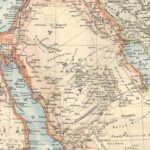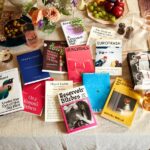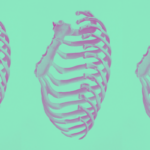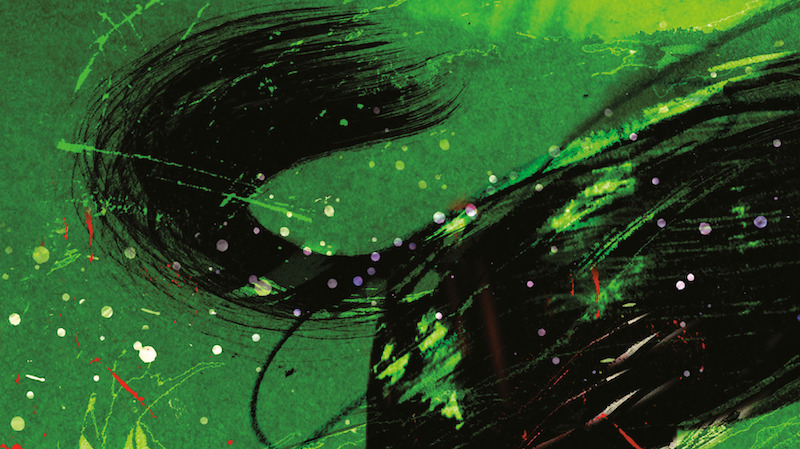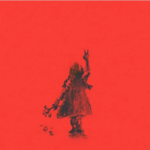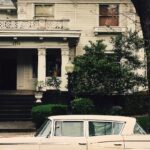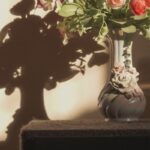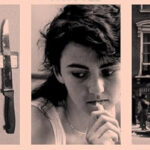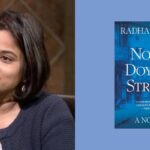Alix Ohlin on Navigating the Rich Literary Territory of Dysfunctional Family Dynamics
The Author of We Want What We Want Talks to Jane Ciabattari
Alix Ohlin “has a rare gift for examining the confusions of the 21st century, exploring the ways in which addictions, afflictions, attractions, and random impulses shape our lives,” I noted in my review of Alix Ohlin’s second collection, Signs and Wonders, for the Boston Globe. Her new collection, We Want What We Want, amplifies this rare gift. Our conversation about these new stories took place during the early summer’s historic heatwave, which baked the Pacific West Coast, including my home in Sonoma County, and Vancouver, where Alix lives. How did the heat dome affect her?
“It’s been more alarming than I can say. Inside of a week the community of Lytton, BC went from setting a record for the highest temperature ever recorded in Canada to being eviscerated by wildfire. No other word but heartbreak for it. My thoughts have grown pretty apocalyptic. Much of my current work in progress centers on environmental issues including wildfires and landscape development and I feel even more galvanized to write about these things now.”
*
Jane Ciabattari: Before the heatwave, how has the last year been for you?
Alix Ohlin: I feel like I’ve been living mostly on Zoom; it’s my habitat at this point, my house is a little box with a mute button. I’ve had a privileged experience of the pandemic in the sense that I’ve been able to do my work from home and to feel safe, and I know how fortunate I am. The workload at my university job has been intense though and there hasn’t been much time for writing. I’m thinking a lot about the return to pre-pandemic life and what it will look like, what choices we will make. Just for one example, air travel to festivals and speaking engagements has been a standard part of a writer’s life, but maybe it shouldn’t be, or shouldn’t be the default. Maybe there are all kinds of reasons to stay on Zoom.
JC: You write novels and short stories, sometimes publishing almost simultaneously. How is the process different for you when working on stories, on novels? Can you tell the difference at the beginning? How?
AO: I’m most myself as a short story writer. I love the form, I find it freeing and elastic, and I have the most confidence in myself in it. As a result, I’m comfortable with uncertainty when I’m writing a story—I can forge ahead without seeing the path, I can be reckless, I can make some technical choice that might not pay off without worrying too much about the consequences. I set about building a novel in a different way, more intentional, thinking about scaffolding and pattern, the gradual accretion of meaning. I may not know exactly where a novel draft is going, but I have a sense of the universe I’m in, the size and heft of the ideas I want to explore, and the fact that I’ll need the length of a novel to work through them. I’ve never had a story grow unexpectedly into a novel as I’ve seen other writers describe it, nor have I ever cannibalized a novel draft back into a story. I make a decision at the beginning about which size canvas I’m working on, and I stick to it come what may. It’s my most sustaining quality as a writer—that I’m very stubborn.
JC: We Want What We Want includes stories first published in The New Yorker, Guernica, The Kenyan Review, StoryQuarterly, The Missouri Review, Triquarterly, Windmill, Ploughshares Solo, The Sewanee Review and Southwest Review. Can you compare the editing experience among these publications? How important are quarterlies and small publications in today’s literary landscape.
AO: Without these kinds of publications I wouldn’t have any kind of path as a writer. I owe them everything and feel enormously grateful to everyone who works on them in any kind of capacity. When I started writing, I’m not sure I knew many short stories other than what I’d read in school and some work by Alice Munro and Mavis Gallant. I would go to libraries or bookstores and find these magazines and read the stories in them to learn about writing. This was before I went to school for writing and I was very isolated, and literary magazines offered me a lot of companionship and guidance. I was amazed by what I found there, this whole conversation in and about contemporary writing. Today I still read them to learn.
I make a decision at the beginning about which size canvas I’m working on, and I stick to it come what may. It’s my most sustaining quality as a writer—that I’m very stubborn.Literary magazines are where I find new writing to admire, by people like Meng Jin, whose story “In the Event” from Threepenny Review I stumbled upon and really love, or Sonya Larson (ditto for her story “Code W” in Ploughshares) or Jonathan Escoffery, whose work I read on Electric Literature. In terms of my own work, the editing experience varies from place to place, but all hold a quality of attentiveness, of taking the work on its own terms. I’m never happier than when an editor points out some sentence that doesn’t hold together or a cut that will make the story’s movement swifter and more sure. I know that the stories in this collection are all stronger for having been vetted by lit mag editors.
JC: Your new story collection often focuses on women in trouble. Bridget in your story “The Point of No Return” is living in Barcelona when we first meet her; that’s where she first meets Angela, who pops up again when Bridget is called back to Canada, where her father is dying. Angela invites Bridget, who she calls her “best friend,” and her fiancé Sam to her wedding in Vancouver. Years later, Angela’s now ex-husband calls upon Bridget—her “best friend”—to rescue her from an isolated cottage in the woods where she has sequestered herself due to a self-defined illness she calls “electromagnetic sensitivity.” Bridget doesn’t feel close to Angela, yet she cannot say no. How do you go about parsing the levels of this friendship?
AO: I’m interested in testifying to the complexity of relationships between women, the push and pull of friendships that are not necessarily romantic but nonetheless carry waves of intensity, of almost chemical attraction, betrayal, heartbreak. Even a relationship that is fairly contained, a passing acquaintanceship or a work connection, can have an extreme effect on a person’s sense of self. And social media can magnify, distort, or confirm all of that. A lot of the stories in this collection involve social media, less because I’m interested in making some kind of comment or critique about it than because it’s such an integrated part of contemporary life and it seems elliptical and false to leave it out.
JC: Then there’s Trisha, “the bitterest soccer mom of all time,” in “Casino,” who “as part of her escape from home she wants to get drunk and complain about her workaholic husband and overscheduled, ungrateful children.” Her sister Sherri, who narrates, notes, “She is my competition, my Irish twin, the thorn in my side. Also: she is my best and oldest friend.” How do you know the ambivalence of sibling rivalry so well? Including the part where sisters offer support in tragedy?
AO: I’m lucky enough to have several siblings but I wouldn’t say that dynamic is part of my relationships with any of them. I’m drawn to writing about siblings mainly because I think there’s something permanent about those relationships, even when you lose people or the connection frays or is extremely dysfunctional—they’ll always manifest in your memory, never slip from your grasp. Somewhere I read once that every good story is a prison story. Meaning that relationships are at their most intense (and narratively rich) when you can’t escape them, you can’t just walk away. This can be true in workplaces and many other contexts, but it’s especially true in a family.
JC: Vanessa and Kelsey, girlhood friends in your story “Money, Geography, Youth,” reach an awkward moment when Vanessa returns from volunteering at an NGO in Ghana to discover Kelsey is living with and soon to marry her dad. You carry the plot through many twists in this story, including the ending. How do you work out a structure like this?
AO: I thought of each character in this story as a vector, moving on a trajectory to get what they want. I love the idea of a story as an arena of collision. The narrative energy of the story then coalesces less around any particular event and more around the interwoven, competing impulses of the characters. I’ve referred to this story elsewhere as a constellation of needs—each character being a star who is part of the cluster while also containing their own energy. What’s important to me about the structure is that every character more or less gets what they want—Vanessa’s mother leaves to start a new life; Vanessa falls in love and goes to college; Vanessa’s father finds a new wife; Kelsey finds stability and security—and yet a coal seam of unease runs underneath it, because getting what you want is less simple than you think it is.
JC: Your characters are complicated—ambivalent, contradictory, idiosyncratic. Are they drawn from observation? People you know? Your own impulses?
AO: I guess it’s a combination of all those things. I just think people are endlessly fascinating and self-contradictory and contain messy multitudes. I write less and less from personal experience and more and more from observation and excavation. One thing I’ve really missed during the isolation of the pandemic is eavesdropping on people—I’ve always loved that. I’m constantly filing things away for later, and then I marry them with some other set of preoccupations or ideas and see what emerges from the juxtaposition.
Meaning that relationships are at their most intense (and narratively rich) when you can’t escape them, you can’t just walk away.This morning I was walking the dog and I heard a woman say to her friend, “When I was seven years old I used to be a genius” and I was so interested and pleased by it, like it was found treasure. What kind of genius things did she do or think or say? When did she decide she wasn’t a genius anymore? I could think about it for hours. These are delights of being in the world.
JC: In your story “The Woman I Knew,” you write, “People use the phrase lost touch as if it’s a casual negligence instead of what it can also be: a grief, a lack.” A number of your characters “lose touch” with friends and reconnect, or lose touch and learn about the other’s life changes from someone else. What draws you to this element of friendship? How common do you think it is?
AO: Those are interesting questions and I’m not sure I know the answer to them. I do sort of hate losing touch myself. I want to know what happened to every single person I ever met. I’ve moved around a lot in my life and switched homes and jobs and countries. I’ve always felt some envy of writers who are particularly immersed in their home territory, who really feel rooted, who write from and about a particular place. That hasn’t been my experience. Losing touch and reconnecting is more a part of my life, and it’s fascinating how it renders people strange and familiar at the same time, known and new. Great territory for fiction.
JC: What are you working on now?
AO: I’m working on a collection of stories with environmental themes, and a novel that’s sort of episodic at the moment but involves a cast of disparate characters all grappling with the ends of things.




